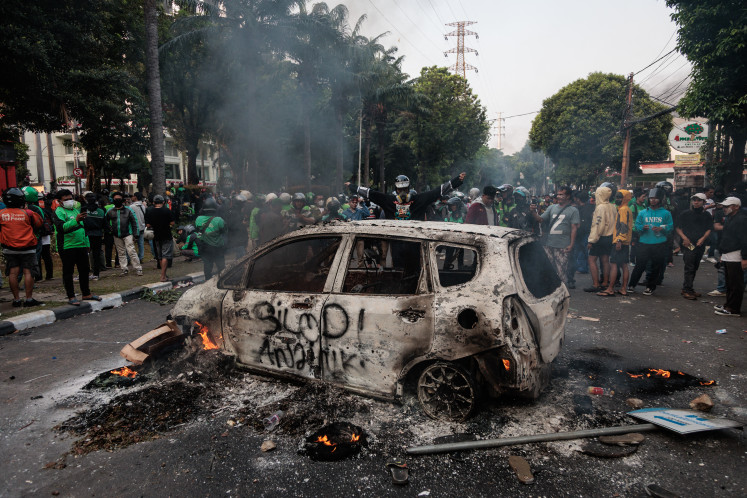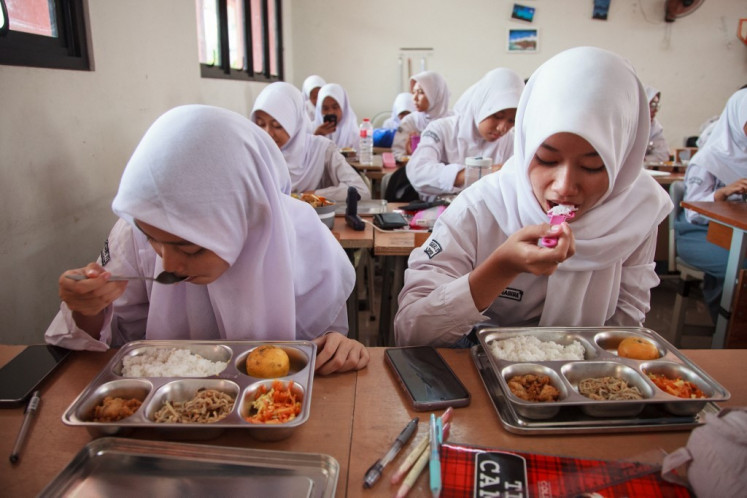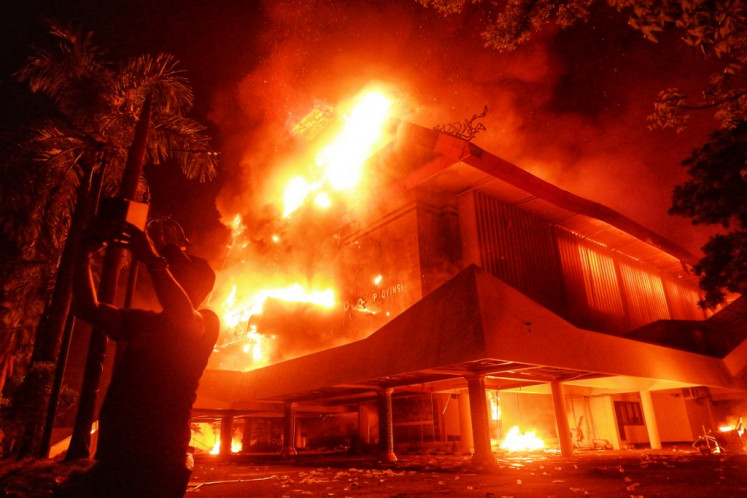Popular Reads
Top Results
Can't find what you're looking for?
View all search resultsPopular Reads
Top Results
Can't find what you're looking for?
View all search resultsInstitutional scramble and RI's REDD+ commitment
After the 2007 international talks on climate change in Bali, reducing emissions from deforestation and forest degradation (REDD+) immediately became a national agenda item
Change text size
Gift Premium Articles
to Anyone
A
fter the 2007 international talks on climate change in Bali, reducing emissions from deforestation and forest degradation (REDD+) immediately became a national agenda item.
Those who agree with REDD+ see it as an opportunity to save Indonesian forests through emission reductions. More than 80 percent of Indonesia's emissions are from forests and peatland. This is real evidence for Indonesia to really work on forest protection.
But those against the agenda see international propaganda undermining promising economic growth. They cite the rejection of oil palm products from Indonesia as the manifestation of the 'green movement', which they consider to behiding the economic agenda of developed countries to keep our economy from achieving more.
A middle ground between these views was provided by former president Susilo Bambang Yudhoyono, who initiated a moratorium on new licenses for forest and peatland.
This saved approximately 64 million hectares (ha) of forest. For environmentalists, this was not enough. Greenpeace stated the real amount of saved forest was about 12 million ha, mostly in remote areas that were difficult to access in Papua and Kalimantan.
Unfortunately, the moratorium was only effective for curbing formal license procedures. It was toothless for practices that rampantly bulldozed forest and peatland illegally.
Up to 2014, REDD+ survived through the one-map policy initiative ' a thematic map that included a land-cover map, a national sea grass/shallow waterbed map and a national maritime characteristics map.
For forest stakeholders, this was a long-awaited breakthrough, to have one simple reference of map.
For business, one map ensured license security.
For forest dwellers, one map secured their rights. For the government, it aimed to help the efficient monitoring, supervision and evaluation of forest protection.
The recently disbanded REDD+ Agency, which has been merged into the Environment and Forestry Ministry, also actively communicated with indigenous groups by incorporating the indigenous participatory map into the thematic map. The agency aimed to be a permanent institution to constantly serve the rights of indigenous peoples to forest and land.
The institutional struggle is a big issue for indigenous people. Several laws have been endorsed including a Constitutional Court decision in 2012 to recognize indigenous rights to forests.
But there is no institutional establishment to put the decision into practice. The REDD+ Agency took the discretion to accommodate the territorial claims of indigenous peoples.
This was like an oasis in the long journey of indigenous peoples toward a real response from a government institution at the level of a ministry.
Since 2007, REDD+ has been subject to a new interpretation to respond to the Indonesian context.
The scope of REDD+ went beyond the technicalities of carbon as it captured almost all the problems of Indonesian forests including tenure, governance, environmental services and biodiversity.
These issues reflect the range of forest destruction created by development policies since the era of former president Soeharto.
REDD+ is certainly not a panacea and it should not be treated as the offset of all forest-related problems. But it positively triggered reflection to create some effective remedies for forests and peatland.
The former forestry ministry was tasked to do so since the early days of reformasi but the evidence clearly shows no big win from this ministry to fight deforestation ' which contributed to its merger with the former environment ministry.
On the other hand, the former forestry ministry's policies created more demand for forest conversion, leading to embarrassment in the international arena for consistently increasing deforestation and a higher level of global emissions.
Establishing an institution to fight against global warming is a real commitment. A fundamental requirement should be at least based on integrity.
An institution trusted to save forest and peatland should have a good track record. In this regard, President Joko 'Jokowi' Widodo has (again) recently established a presidential decree for the forest authorities to save forest and peatlands.
The decree gives even more power to the Environment and Forestry Ministry to tackle global warming, including REDD+.
The ministry could still target more forest to be consumed for licenses. Do not forget that forests are a political asset for political transactions. There are so many examples that show that licenses are effective instruments to boost political transactions.
Climate change is a cross-sector issue and therefore needs more interlinking functions of an institution. It is also an extraordinary problem that impacts on us every year in the form of floods, heavy rain, pests, forest fires, new viruses, and the like.
The President should take the lead to tackle an issue that globally threatens human life and civilization. It is also time to go beyond the previous weaknesses of national leadership, when Indonesia was successful only in rhetoric.
Widespread destruction is happening systemically across the country. Mr. President, this should be a real commitment for you, not only for your government but for the future of Indonesia's existence.
____________________
The writer is a member of the HuMa Association in Jakarta.










